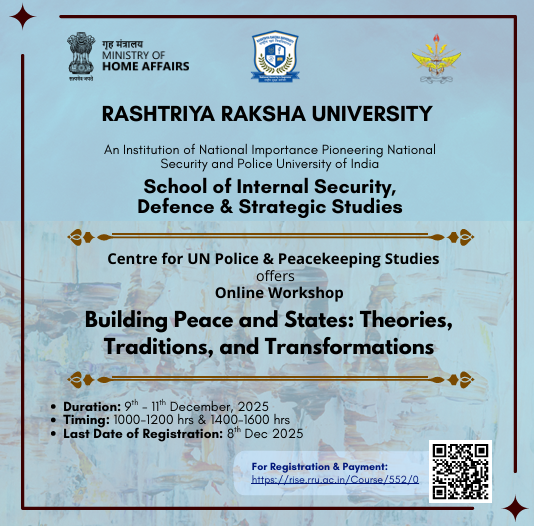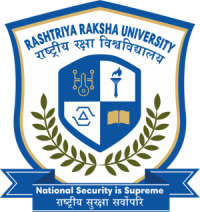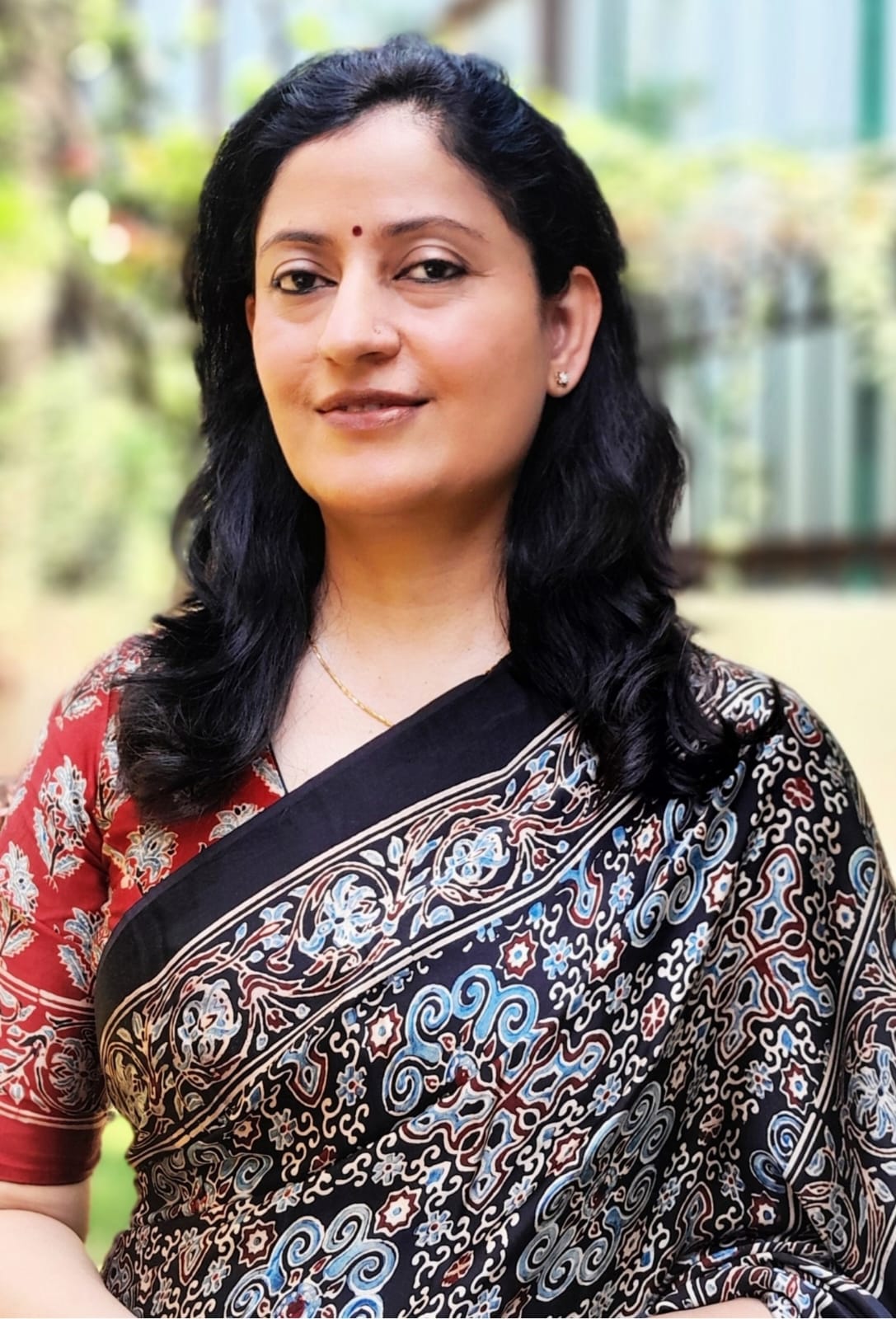3-Days Online Workshop on Building Peace and States: Theories, Traditions, and Transformations - Batch-1

Description
In the contemporary global landscape, peacebuilding and statebuilding are critical processes for ensuring sustainable development, security, and governance. These processes involve not only addressing the immediate aftermath of conflict but also tackling deep-rooted structural issues such as nationalism, ethnicity, and democratization. Understanding the theoretical frameworks, historical evolution, and diverse models of peacebuilding is essential for policymakers, practitioners, scholars, and students who engage with post-conflict reconstruction and governance. Additionally, incorporating indigenous and regional perspectives, such as Indian theoretical traditions, enriches the discourse and practice of peacebuilding.
What you'll learn
Enhanced conceptual clarity on peacebuilding and statebuilding.
Familiarity with indigenous peacebuilding traditions and their relevance today.
Critical understanding of theoretical frameworks and practical challenges.
Capacity to design and implement informed peacebuilding and statebuilding interventions.
Requirements
Course Content
 No Content Founds.
No Content Founds.
Semester with subjects
 No Semester Founds.
No Semester Founds.
Experts
Dr. Kajari Kamal is a political scientist and strategic analyst with a PhD in Political Science. She specializes in International Relations, Indian Foreign Policy, Geopolitics, and Strategic Culture. She is a published author with Routledge (2022) and a contributor to leading peer-reviewed journals, known for her pioneering scholarship on the contemporary relevance of Kautilya’s Arthashastra. She also supervises doctoral research and is a frequent invited speaker at premier defense and academic institutions.


Recent Reviews